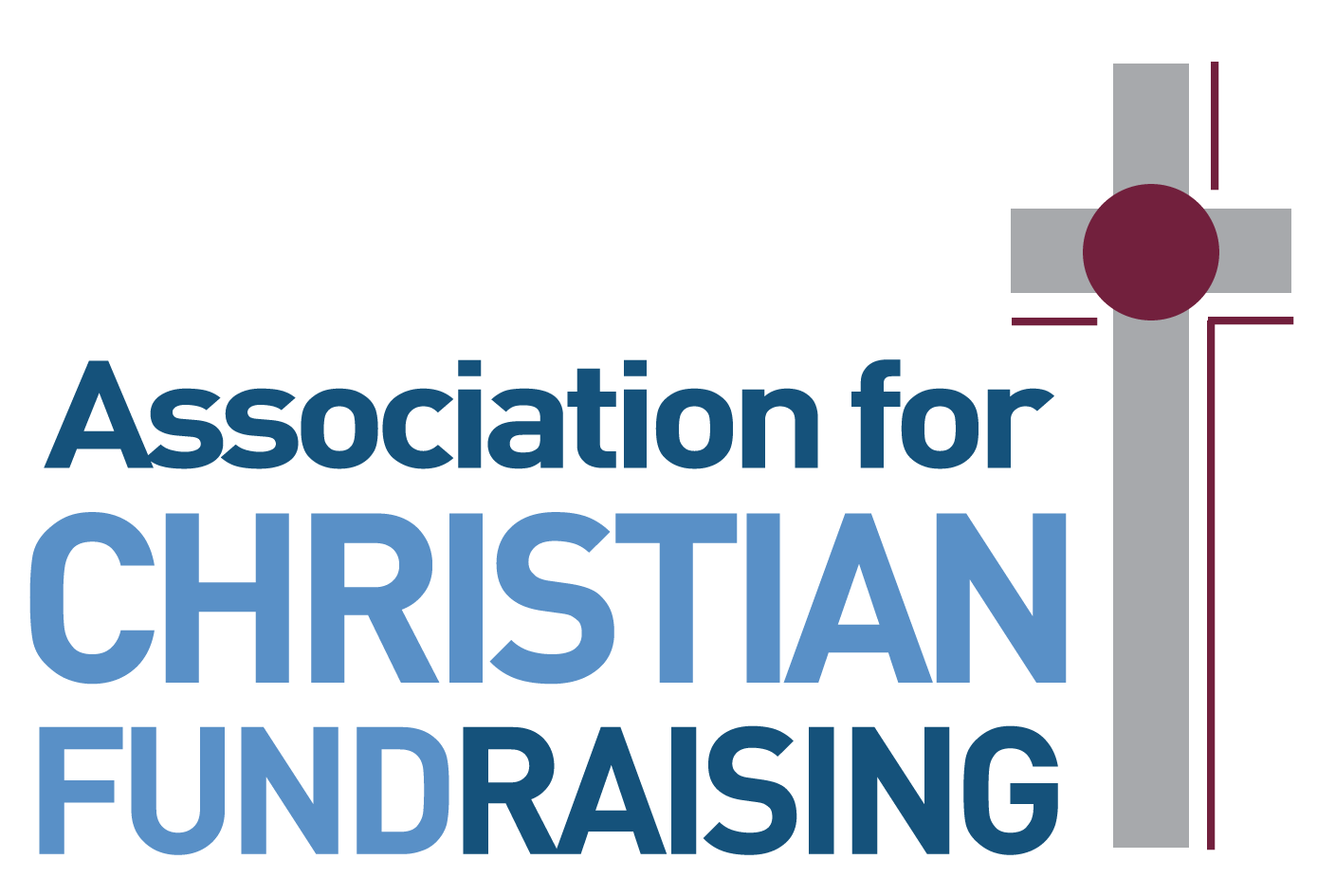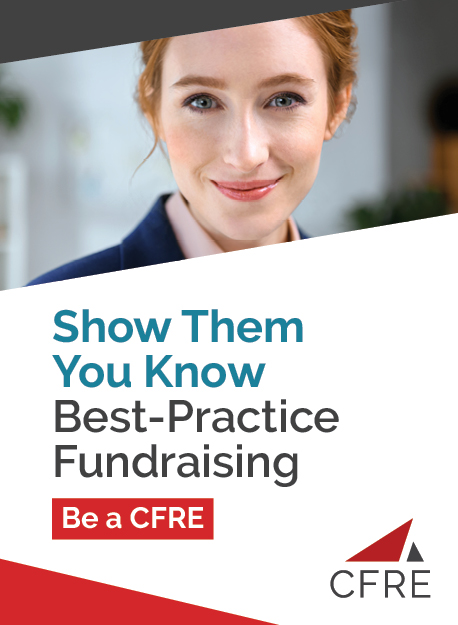Resources
What's the Big Idea? Game-Changing Solutions in Fundraising - Northstar Fall 2022 Meeting
Featuring presentations from fundraising experts David Fuerst, Associate Vice President of Global Relationships and Resources for Corus International, and Frances Roen, CFRE, Founder and CEO of Fundraising Sol
Watch the recording
As the COVID-19 situation continues to evolve, ACF is here to support you and your organization. Here are resources we have collected to help:
- Insights by Novus - on-demand strategic marketing consulting
- "Fundraising in a Crisis" - Penelope Burk, Burk's Blog
- "Advancement During Our Global Crisis" - Gonser Gerber LLP
- "5 COVID-19 / Coronavirus Fundraising & Donor Relations Tactics" - Bloomerang
- "10 Things Fundraisers Can Do From Home During the COVID-19 Pandemic" - sgENGAGE/Blackbaud
- Several Articles, Including "What about campaigns in times like these?" and "Fundraising in Uncertain Times" from the Gronlund Sayther Brunkow (GSB) Blog
- "7 Ways to Give Back During the COVID-19 Pandemic" - ResultsPlus/Metafile Information Systems
- Support From the Lutheran Church Extension Fund
- Free Articles from "Planned Giving Today" and Mary Ann Liebert, Inc., publishers
- Current grant funding opportunities in the area of COVID-19, updated each business day, from GrantStation
- "Communicating Hope" - Sharpe Group
- "COVID-19 a Pandemic, But Don't Panic" - Meyer Partners
- "The Agitator" Brought to you by DonorVoice
- "Surviving and Even Thriving During Trying Times" - Rescigno’s
- COVID-19 Resources page from BWF
- Navigating how to suddenly work from home - Facebook Live conversation from DonorSearch
- How the LCMS Foundation is Responding to COVID-19
- "ELCA presiding bishop issues pastoral message in response to COVID-19 pandemic"
- "Spiritual and mental health support" for those finding themselves alone or dealing with anxiety - Wisconsin Evangelical Lutheran Synod
- "Philanthropy in Times of Coronavirus" - Janice Fonger of J. Milito and Associates on WGVU Public Media radio
- "Be Not Afraid!" - Good Shepherd Travel/Holy Land Tour
- "COVID 19 & Marketing for Nonprofits" - Video from Nonprofit Marketing Strategies
- Coronavirus Crisis Resource - Veritus Group
- COVID-19 Resources Page for Social Services - Mission Advancement
- "Faith & Philanthropy in a Time of Crisis" - Brenda Moore & Associates
- Open Letter: The Charitable Sector: COVID-19 Relief and Economic Stimulus Package
- TNPA State Legislative Report | March 2020 - The Nonprofit Alliance
- Philanthropy in times of Coronavirus Facebook Group
- "Dos and Don’ts of Emergency Appeals – Tested Best Practices" - Heather Hill, CNM, CFRE
- "What Nonprofits (& Their Consultants) Can Do in a Pandemic" - Heather Hill, CNM, CFRE
- LAPA Blog - Inside News on Fundraising for your Organization
- "Common Sense Fundraising" - Meyer Partners
- COVID-19 Resources and Communications Examples From Volunteers of America
- Looking to work on professional development during quarantine? Watch, "How to Become a CFRE," our March 2020 webinar by Ashley Gatewood of CFRE International.
- "Churches and Faith-Based Fundraising: Recommendations for Recovery and Growth" - Nikki Rach, CFRE, Winkler Group
- "The Donor Cultivation Piece You’re Probably Missing" - Jennie Wolf Smith, CFRE, Gronlund Sayther Brunkow
- The Novus Show podcast
- "Advocating fundraising during the Coronavirus pandemic" - Rogare
Do you have resources or webinars to suggest? Please submit them here. We welcome content developed by your organization, or by others.
4 Big Ideas for This Time
Carter Wade, Senior Partner, Veritus Group, provides this list to consider in the midst of the current crisis:
- Stay the course and work the plan. If you are considering cutting new donor acquisition or reducing any donor cultivation impacts (such as appeals and newsletters), don’t do it. It will be a mistake and will ultimately hurt your revenue. We’ve seen organizations pull back in times of crisis and it negatively affected them in a big way. Those that stayed the course and worked their plans came out in great shape. I know it can “feel” counter intuitive, but those are the facts about what happens.
- Continue with your Mid, Major, and Planned Giving efforts. Now is also not the time to cut back on any of these critically important programs. They generate high ROIs and are a low risk investment. If you don’t stay focused on cultivating strong relationships with these important donors, other organizations will step in to take care of them instead.
- Keep presenting the needs to your mid and major donors. There will most likely be donors in your portfolio who want to give to do something about the coronavirus outbreak. Don’t try to discourage them from doing that. Yes, you read that right. You want donors to feel good about giving to what they’re passionate and interested in supporting. And being part of that dynamic with them will accrue to your benefit in even a better relationship with the donor. However, you must continue presenting them with the needs of your organization’s programs and services and unapologetically ask them for their financial support stating that now more than ever their support is needed. Even though the coronavirus is on everybody’s mind, it doesn’t change the fact that donors love your cause and will stand with you during these times. Don’t be fearful.
- Use special messaging to your donors. Thinking back to major events like 9/11 and the stock market crash of 2008 when fears were running high, it’s important to use special messaging to remind donors about how much they are appreciated and that you care first and foremost that they are okay. And that your organization exists for them to be a channel to affect change in society that they want to help you achieve. Your donors will feel great knowing that you genuinely care about them. Consider using inserts in your donor acknowledgements, handwritten notes of care and concern to your mid/major/PG donors, and do the same in personal emails.
White Papers and Tools
We are currently collecting white papers and articles to create a library of resources to benefit you and all those working in faith-based development. Do you have a piece you could share, or an idea you've been thinking about putting down? Or, do you know someone who has something to impart? Please contact Jon at jon@acfundraising.org.
To view these resources click any of the links, and you'll be asked to log in as a member.
FEP Donor Retention Supplement - 2015 Fundraising Effectiveness Survey Report
Written by: Ben Miller and Heather R. McGinness, CNM, CFRE
Contributions by: Bill Levis, Jim Greenfield, Caity Craver, Cathy Williams
In 2006 the Association of Fundraising Professionals (AFP) and the Center on Nonprofits and Philanthropy at the Urban Institute established the Fundraising Effectiveness Project to conduct research on fundraising effectiveness and help nonprofit organizations increase their fundraising results at a faster pace. The project goal is to help nonprofit organizations measure, compare and maximize their annual growth in giving. The FEP Fundraising Effectiveness Database housed at the Urban Institute is available free to nonprofit sector researchers on request. The groundbreaking annual Fundraising Effectiveness Survey, piloted in November 2006, collects fundraising data from nonprofit organizations beginning with data for 2004-2005. The Fundraising Effectiveness Survey enables participating nonprofits to measure and compare their fundraising gain and loss ratios to those of similar organizations. ACF Board Member Heather R. McGinness, CNM, CFRE, worked on this Donor Retention Supplement to the survey report and we're proud to share it with our members.
Professional Standards, Sacred Trust
Heather R. McGinness, CNM, CFRE
Senior Consultant - Account Executive
Meyer Partners - Schaumburg, Illinois
It is not uncommon to hear professional development and continuing education related to fundraising and development dismissed as unimportant. For some detractors, there is a feeling that “professionalizing” fundraising diminishes it as a ministry. This is easily refutable, given the training our religious leaders undertake in seminaries, the education those in healthcare ministries receive and certifications required for serving in education ministries within schools. Surely the time spent gaining specific knowledge for those ministry areas is beneficial. Applied studies in ministry programs develop and sharpen skills and ensure the highest level of care and service are delivered. Professional training serves to enhance, not detract from, ministry. Read the full text.
Searching for the Right Software Product
Martha Stocker
Software Support Administrator
Lutheran School of Theology at Chicago - Chicago, Illinois
I believe one of the most difficult tasks any organization runs across is deciding to move to different software and not knowing what steps to take to make the right choice.
Here is what I recommend based my personal experience, which includes both positive and negative choices.
- Determine your main objective (having some clear objectives prior to researching software makes it more manageable)
- What do you want to get out of the software?
- What are your limitations with your current software?
- Who are all your users?
Read the full text.
DonorTrends Move Your Metrics Donor Retention Calculator
DonorTrends, Inc.
Are you maintaining this vital gift source? Download our free tool, the DonorTrends Move Your Metrics Donor Retention Calculator, to determine the state of your program and identify areas for improvement. Get this tool.
|

